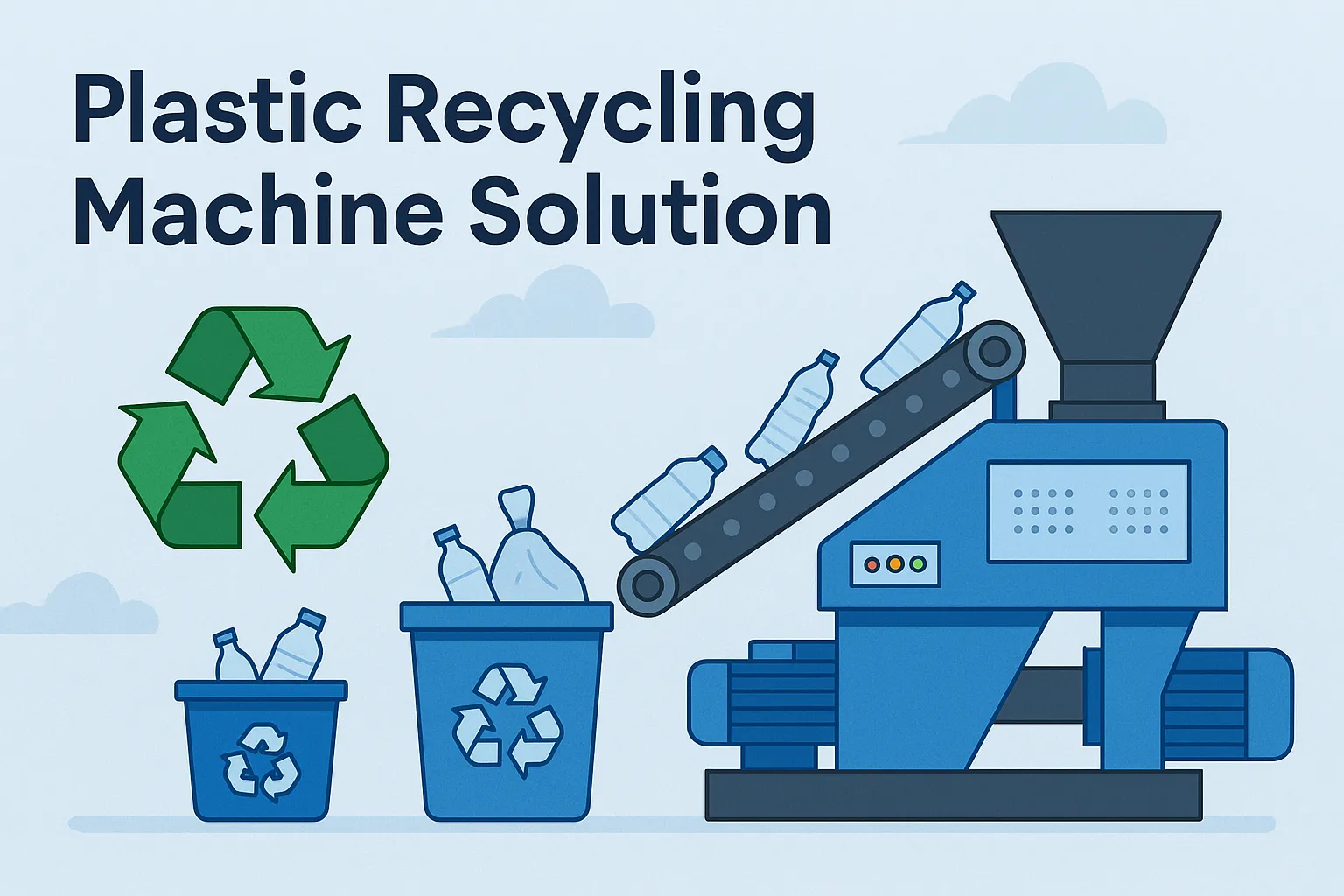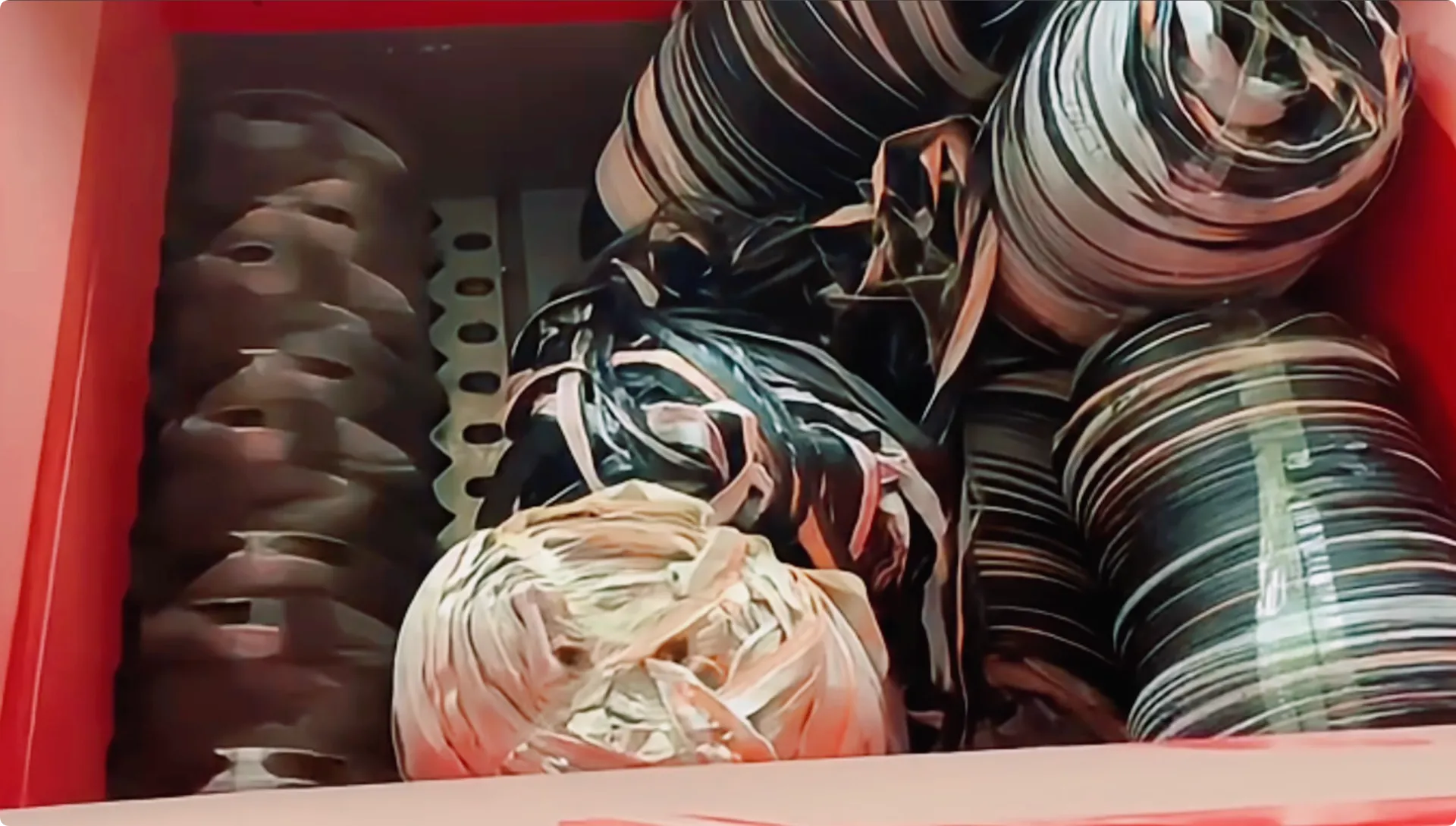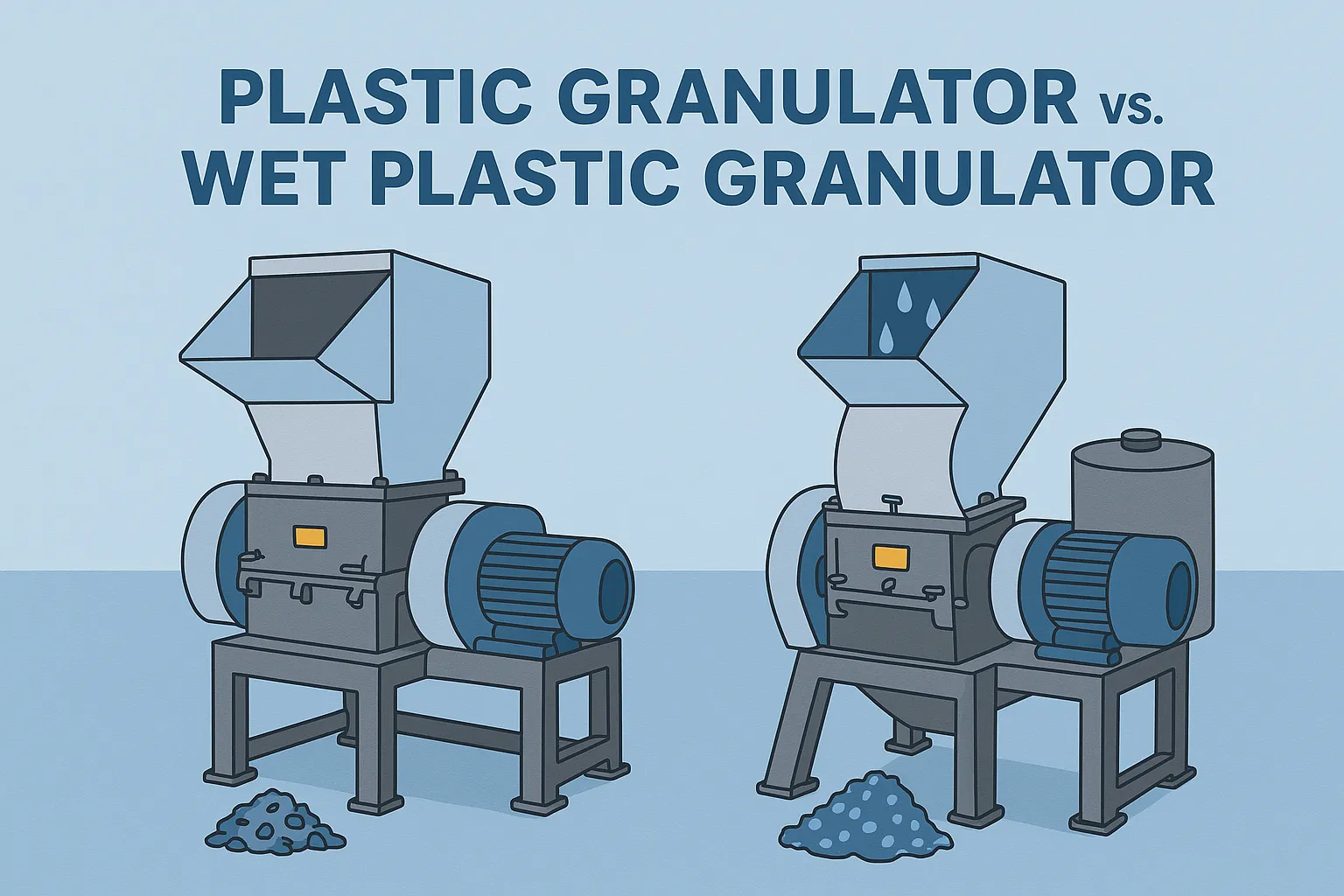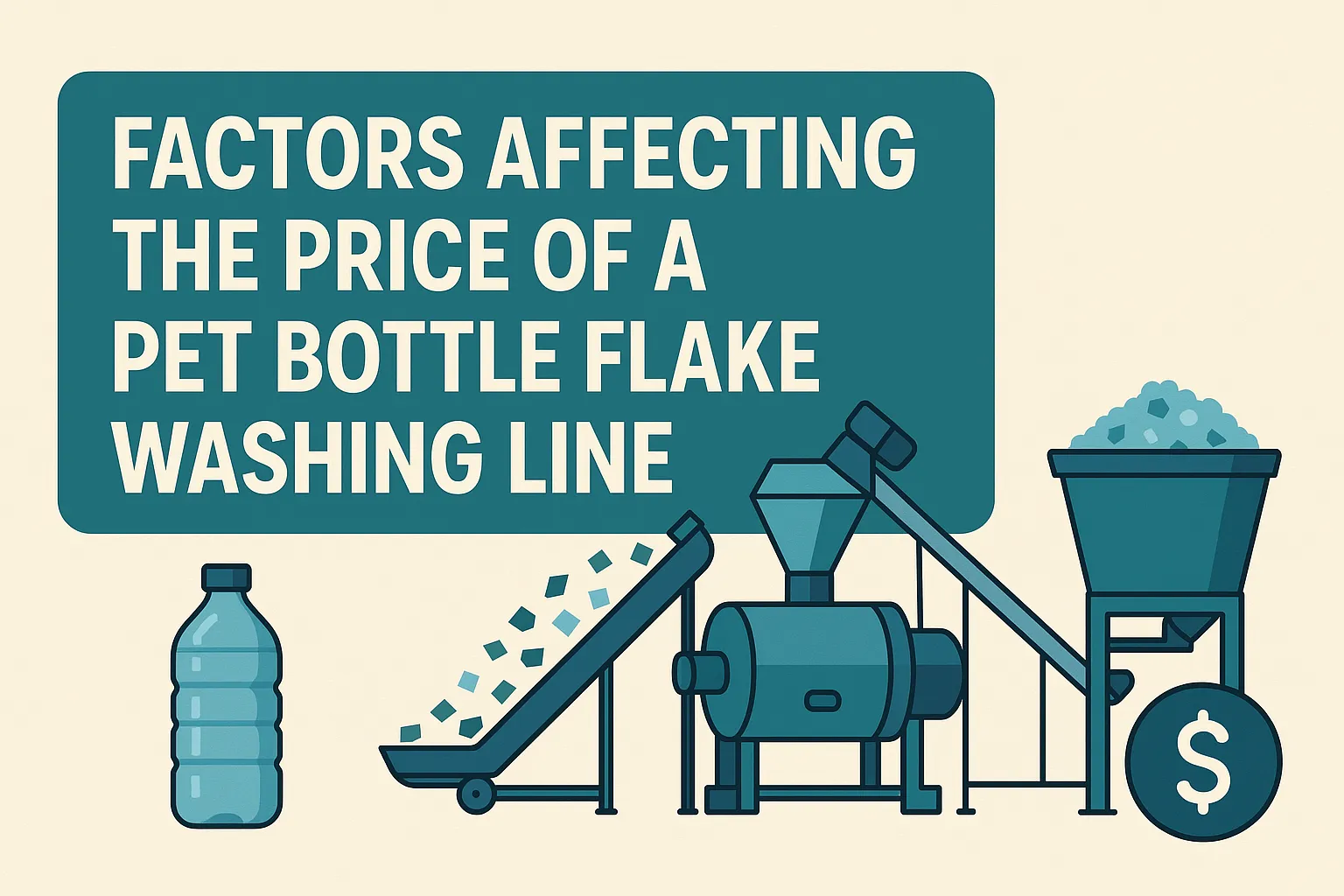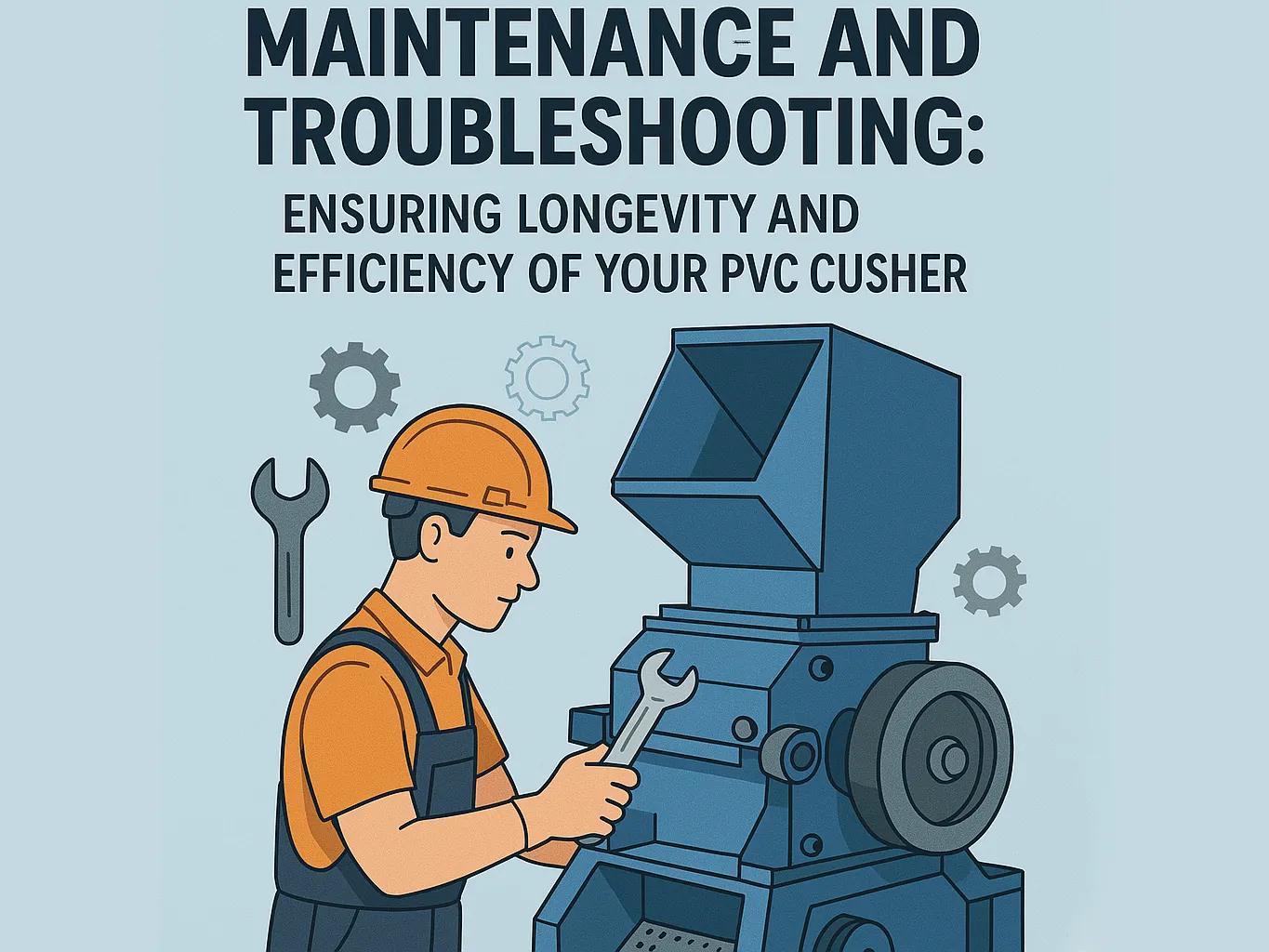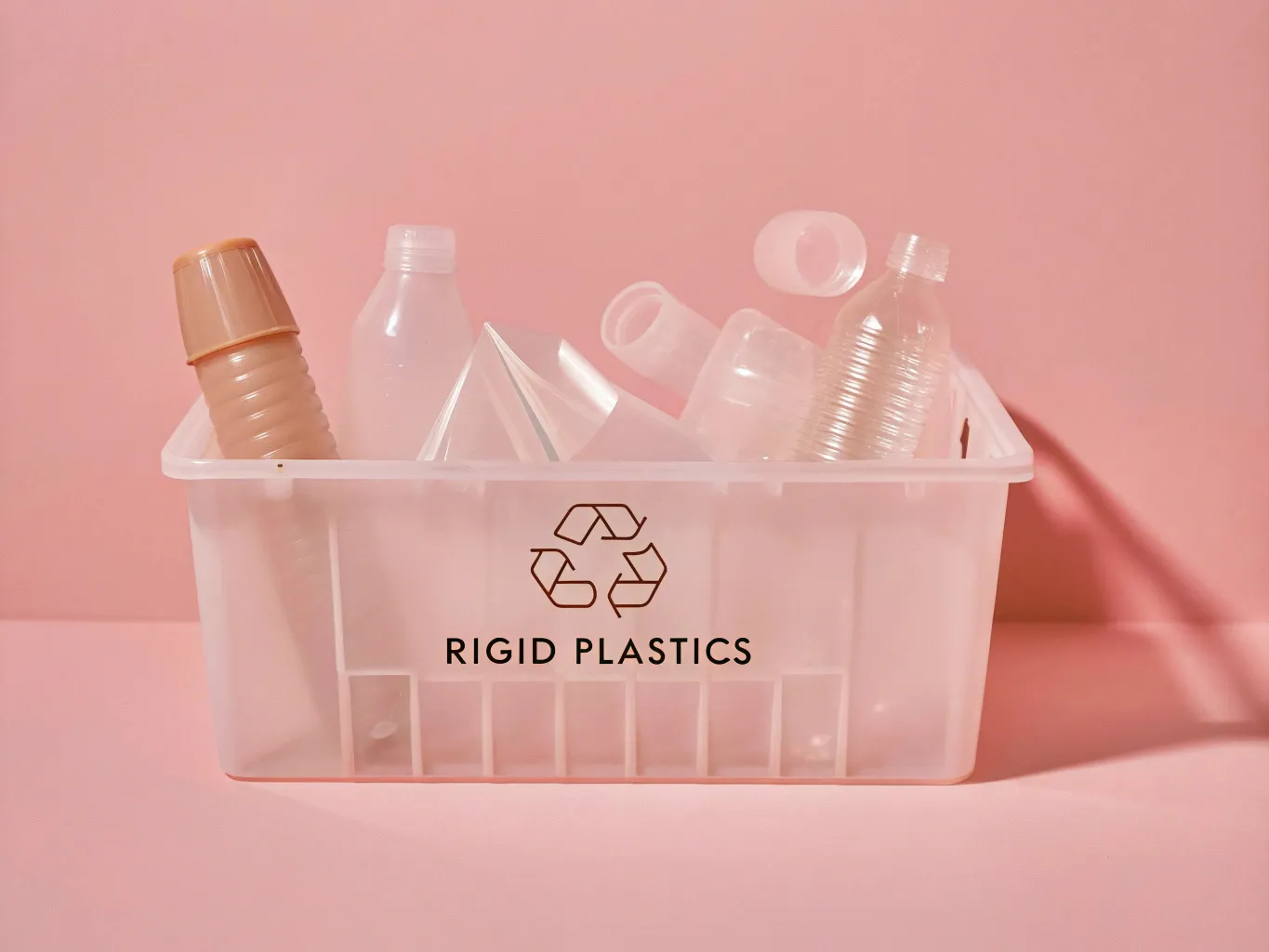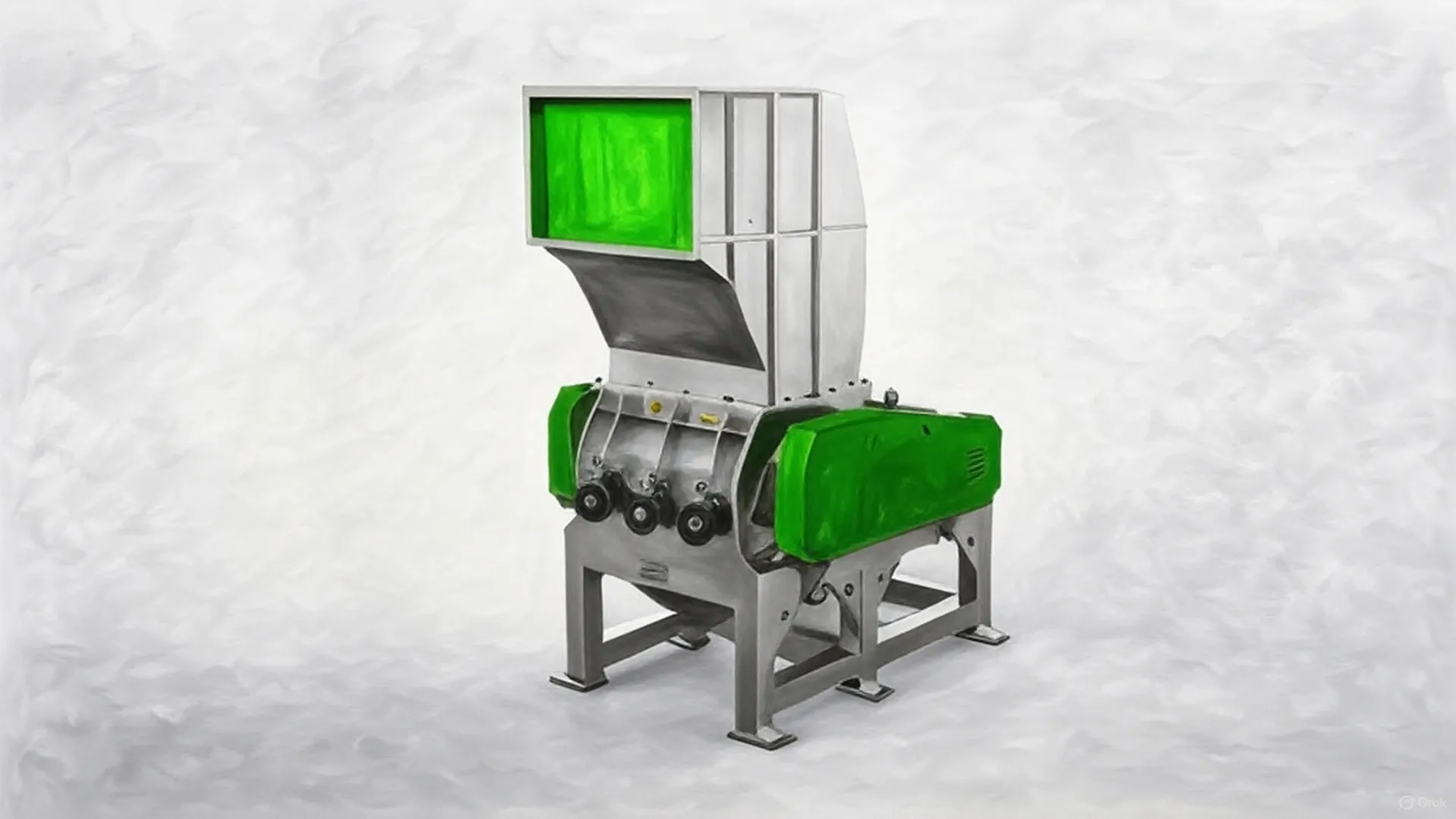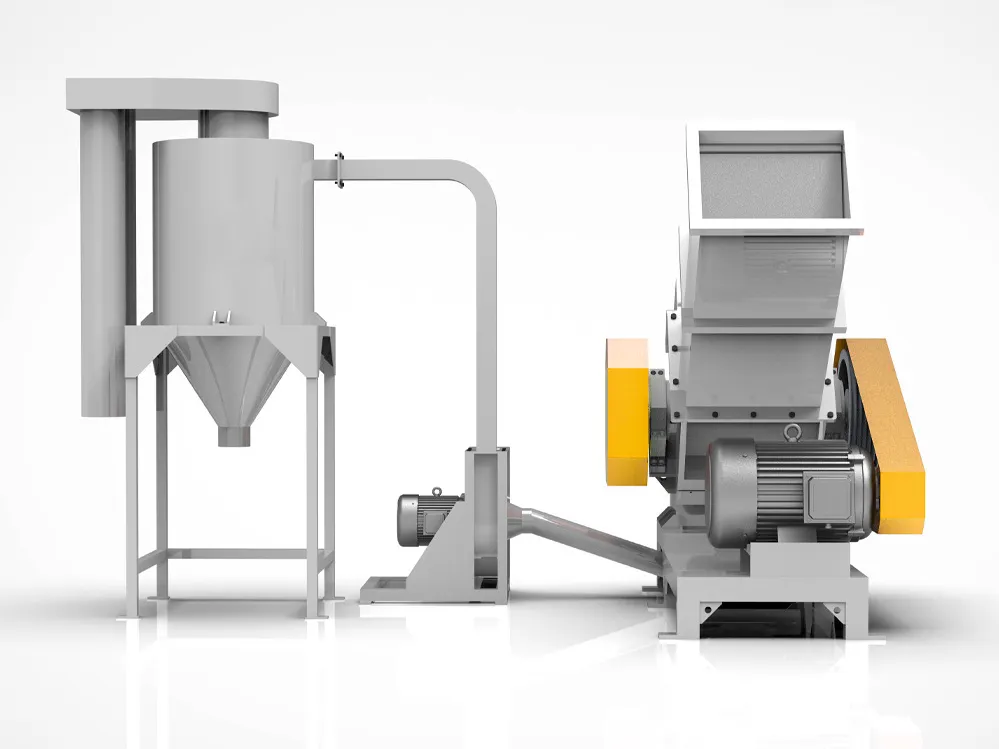Recycling News
The sheer volume of textile waste generated globally presents a significant challenge, but within this challenge lies a powerful opportunity for innovation and sustainability. Efficiently breaking down fabric materials into smaller components is a crucial step in both recycling and responsible waste management, paving the way for repurposing and minimizing environmental impact. Energycle stands at the forefront of this effort, offering advanced textile shredders specifically engineered to tackle the complexities of fabric processing and contribute to a more circular economy.
In the dynamic world of plastic recycling, efficiency and effectiveness are paramount. A crucial step in this process involves reducing plastic waste into manageable pieces, and this is where plastic granulators come into play. While standard plastic granulators have been a workhorse in the industry, wet plastic granulators have emerged as a compelling alternative. This comprehensive comparison delves into the similarities and key differences between these two technologies, exploring their respective advantages and disadvantages to help you make an informed decision for your recycling operations.
Polyethylene (PE) films are among the most versatile and widely used materials in packaging, agriculture, construction, and countless other industries. Known for their durability, flexibility, and cost-effectiveness, PE films come in various forms, each with distinct properties suited to specific applications. However, when it comes to recycling or cleaning these films—whether for reuse or sustainability efforts—their unique characteristics dictate different washing requirements. In this article, we’ll explore the main types of PE films, their practical uses, and the washing processes needed to maintain or recycle them effectively. Let’s dive in!
The recycling industry has seen tremendous growth in recent years, driven by increasing demand for sustainable practices and materials. One critical component of this industry is the PET (Polyethylene Terephthalate) bottle flake washing line—a sophisticated system designed to clean and process used PET bottles into high-quality flakes for reuse. Whether you're a recycling startup or an established business looking to upgrade your equipment, understanding the factors that influence the price of a PET bottle flake washing line is essential for making informed purchasing decisions. In this article, we’ll explore the key elements that affect the cost of these systems, offering practical insights to help you budget effectively and optimize your investment.
What Is a PET Bottle Flake Washing Line?
Before diving into the pricing factors, let’s clarify what a PET bottle flake washing line entails. This machinery is used to recycle post-consumer PET bottles (like water and soda bottles) by transforming them into clean, reusable flakes. The process typically includes sorting, crushing, washing, rinsing, drying, and sometimes pelletizing. The resulting PET flakes can be used to manufacture new bottles, textiles, or other plastic products. The price of this equipment can vary widely, ranging from tens of thousands to hundreds of thousands of dollars, depending on several variables. Let’s break them down.
Key Factors Influencing the Price
1. Production Capacity
The capacity of a PET bottle flake washing line—measured in kilograms or tons per hour—is one of the most significant cost drivers. A small-scale line with a capacity of 500 kg/hr will naturally cost less than a high-capacity system processing 3,000 kg/hr or more. Higher capacity lines require larger machines, more robust motors, and additional components to handle the increased throughput, all of which contribute to a higher price tag.
- Practical Insight: If you’re just entering the recycling market, start with a smaller capacity line (e.g., 500–1,000 kg/hr) to minimize upfront costs. As demand grows, you can scale up to larger systems.
- Price Range: Small-scale lines might start at $50,000, while industrial-scale systems can exceed $300,000.
2. Level of Automation
Automation is a game-changer in modern recycling equipment. Fully automated washing lines, equipped with PLC (Programmable Logic Controller) systems and touch-screen interfaces, reduce labor costs and improve efficiency but come at a premium. Semi-automated or manual systems, while more affordable, require more human intervention, which can increase operational costs over time.
- Practical Insight: Consider your labor budget and production goals. For regions with high labor costs, investing in automation may pay off in the long run despite the higher initial price.
- Cost Impact: Fully automated systems can add $20,000–$100,000 to the base price compared to manual alternatives.
3. Material Quality and Durability
The materials used in constructing the washing line significantly affect its price and lifespan. High-quality systems often feature stainless steel (e.g., SUS304) for parts that contact water and plastic, ensuring corrosion resistance and durability. Cheaper models might use lower-grade materials, reducing upfront costs but potentially leading to higher maintenance expenses.
- Practical Insight: Opt for stainless steel components if you plan to run the line continuously or process heavily contaminated bottles. The initial investment will save you from frequent repairs.
- Cost Impact: Stainless steel construction can increase costs by 10–20% over basic steel or mixed-material options.
4. Washing Process Complexity
PET washing lines come in two main types: cold washing and hot washing. Cold washing uses room-temperature water and is more energy-efficient, making it cheaper to purchase and operate. Hot washing, which uses heated water to remove stubborn contaminants like grease or labels, requires additional heating systems and insulation, driving up the price.
- Practical Insight: Choose based on your input material. If your PET bottles are relatively clean, a cold washing line may suffice. For heavily soiled bottles or food-grade flake production, hot washing is worth the extra cost.
- Cost Impact: Hot washing systems can cost 15–30% more than cold washing lines due to added heating and energy requirements.
5. Customization and Additional Features
Every recycling operation has unique needs, and manufacturers often offer customizable options. Features like advanced sorting systems (e.g., color or material sorters), friction washers, or specialized drying units can enhance flake quality but increase the price. Similarly, turnkey solutions that include installation and training will cost more than basic equipment packages.
- Practical Insight: Prioritize features that align with your end-product goals. For example, if you’re targeting food-grade PET flakes, invest in high-quality sorting and washing add-ons.
- Cost Impact: Customization can add $10,000–$50,000 or more, depending on the complexity.
6. Manufacturer Reputation and Origin
The brand and country of origin play a big role in pricing. Established manufacturers with a proven track record (e.g., from Europe or North America) often charge more due to superior engineering and after-sales support. Conversely, manufacturers from regions like China may offer competitive pricing, though quality and support can vary.
- Practical Insight: Research supplier reviews and request references. A slightly higher price from a reputable brand might be justified by reliability and service, especially for long-term operations.
- Cost Impact: European or U.S.-made lines might cost 20–50% more than similar systems from emerging markets.
7. Energy and Water Efficiency
Sustainability is a growing concern, and energy-efficient machines can lower operating costs. However, these systems often require advanced technology—like heat recovery systems or optimized water recycling—which increases the purchase price. Lines designed to minimize water usage also tend to cost more due to additional filtration and treatment components.
- Practical Insight: Calculate your local energy and water costs. In areas with high utility rates, an efficient system could offset the higher upfront cost within a few years.
- Cost Impact: Energy-efficient designs can raise prices by 10–25%.
8. After-Sales Support and Warranty
A comprehensive warranty and reliable after-sales service (e.g., spare parts availability, technical support) can add to the cost but provide peace of mind. Budget models might lack robust support, leaving you vulnerable to downtime and repair expenses.
- Practical Insight: Factor in the cost of downtime. A slightly pricier system with a strong warranty might be cheaper than frequent repairs on a budget model.
- Cost Impact: Extended warranties and support packages can add $5,000–$20,000 to the total.
Hidden Costs to Consider
Beyond the sticker price, several hidden factors can affect your total investment:
- Shipping and Installation: Importing equipment from overseas can incur significant freight and customs fees, while installation might require specialized technicians.
- Operational Costs: Energy, water, and labor expenses vary by region and system efficiency.
- Maintenance: Regular servicing and replacement parts should be budgeted annually.
Practical Insight: Request a detailed quote that includes shipping, installation, and a year’s worth of operational cost estimates to avoid surprises.
How to Optimize Your Investment
To get the best value for your money, follow these steps:
- Assess Your Needs: Determine your production volume, input material quality, and target flake purity to avoid over- or under-spending.
- Compare Quotes: Source proposals from multiple suppliers and evaluate them based on features, not just price.
- Negotiate: Many manufacturers offer discounts or flexible payment terms, especially for bulk or repeat orders.
- Plan for Scalability: Choose a system that can be upgraded rather than replaced as your business grows.
Conclusion
The price of a PET bottle flake washing line is influenced by a mix of technical, operational, and market factors. From production capacity and automation to material quality and manufacturer reputation, each element plays a role in determining the final cost. By understanding these variables and aligning them with your business goals, you can invest wisely in a system that delivers both quality flakes and long-term profitability. Whether you’re aiming for a budget-friendly setup or a high-end, food-grade operation, thorough research and planning are your keys to success in the dynamic world of PET recycling.
Ready to take the next step? Start by defining your recycling goals and reaching out to suppliers for tailored quotes—your sustainable future awaits!
Proper maintenance is essential for ensuring the long-term efficiency, reliability, and safety of PVC crushers . Regular maintenance can prevent breakdowns, reduce downtime, and extend the lifespan of the machine. Here are some key maintenance tips and common troubleshooting methods:
This article examines recycled polyethylene terephthalate (PET) fibre, covering its production, properties, applications, and environmental benefits. Designed for industry professionals, it highlights the role of PET bottle recycling machines in transforming waste into sustainable textiles.
Plastics can be categorized in various ways, including by their resin identification code (number) or by their physical properties, such as being rigid or flexible. This article delves into the world of rigid plastics – materials characterized by their stiffness, structural integrity, and ability to maintain shape under normal conditions. Given their widespread use across numerous industries, understanding the different types of rigid plastics and, crucially, how to effectively recycle them is essential for sustainability.
In an era where sustainability is paramount, recycling polyethylene terephthalate (PET) has become a crucial part of waste management. Found in everything from drink bottles to food packaging, PET is highly recyclable—but only if properly processed. A PET flake washing line is where the magic happens, transforming grubby, discarded plastic into pristine flakes ready for reuse.
When dealing with PVC (polyvinyl chloride), whether for recycling, manufacturing, or industrial purposes, two primary methods typically emerge: grinding and crushing. Although these terms are often confused, they actually refer to distinct processes with unique outcomes and applications. For businesses, engineers, or even DIY enthusiasts working with PVC, knowing how grinding differs from crushing can greatly enhance efficiency, reduce costs, and simplify workflows. This guide clarifies the distinctions between these methods, outlines their practical uses, and offers insights to help you select the best approach.
Selecting an appropriate PVC crusher is key to improving recycling efficiency, cutting operational costs, and producing consistently high-quality recycled material. To find the best fit, businesses should take into account the following crucial factors:
When processing PVC profiles and similar materials, specialised PVC profile crushers demonstrate distinct advantages over standard crushers in both design and performance. This comparison highlights key differences, particularly in handling lengthy profiles, dust reduction, and improving recycled pellet quality - crucial factors for informed equipment selection.



